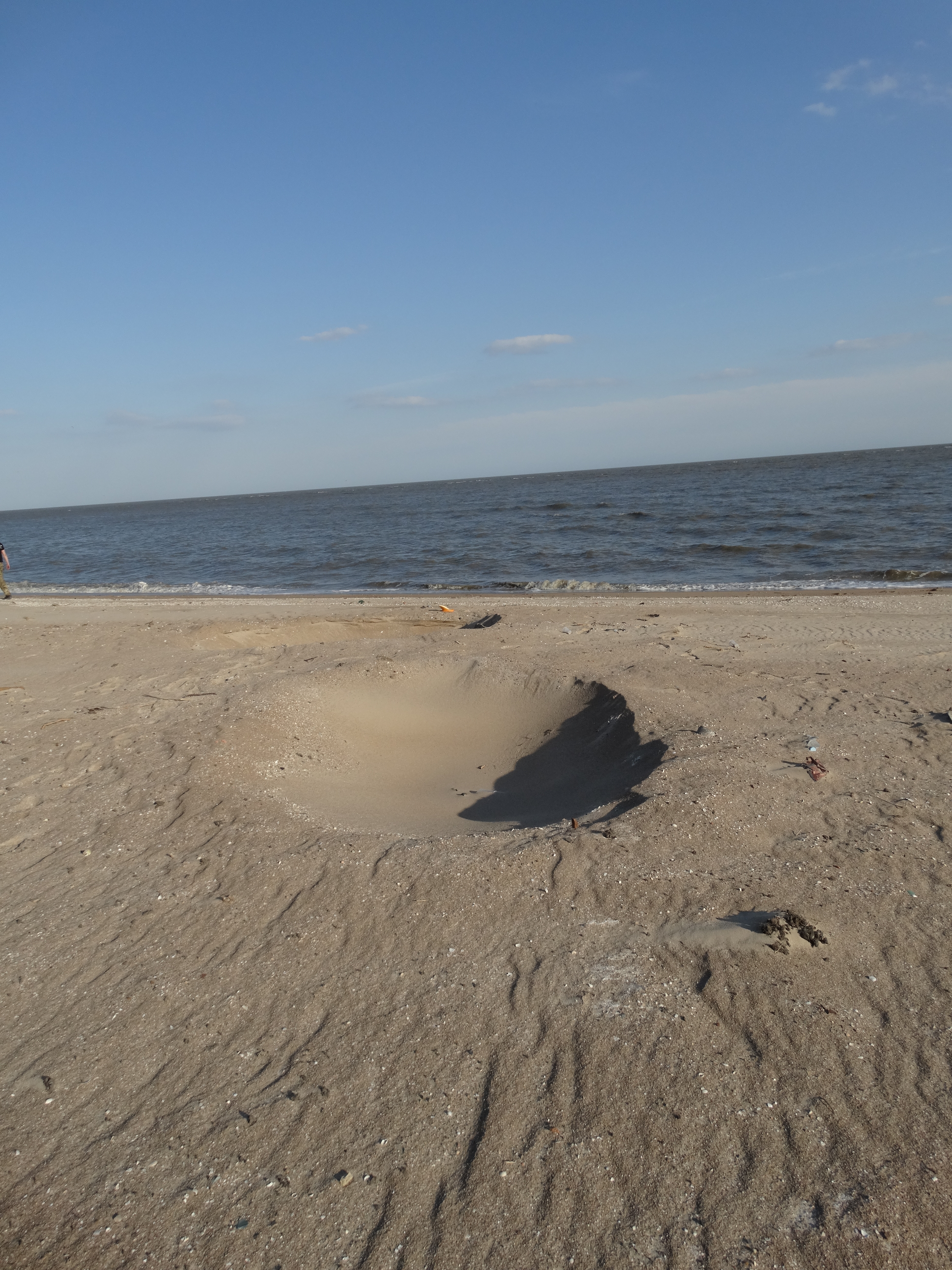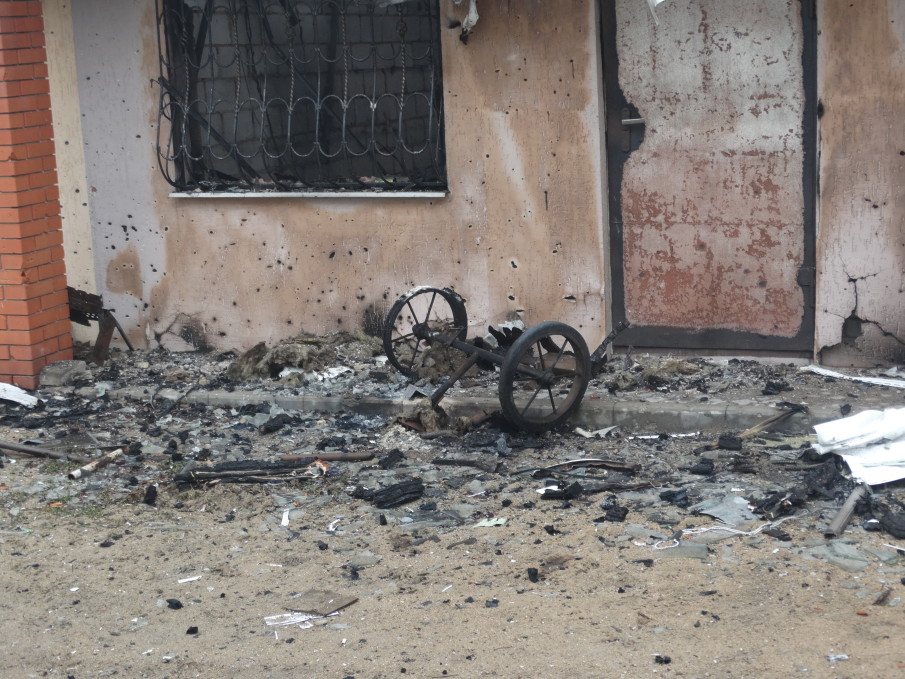The lines are crowded with overconfident yet poorly trained soldiers and commanders who all want to be operators, but do not want any operator training. They each have their own (yet typically recurring) excuses for their disregard of professional training, such as: “I used to play Airsoft before the war,” or, “My friends and I were war reenactors,” or, “We were in prison,” or they think that, by simply being in a volunteer battalion for a year, it qualifies them to be Rainbow-Delta-Team A-6 forces. But the most indulged reason is the onset of often severe cases of regional bravado personality disorder. This personality disorder is difficult for many Westerners to comprehend. Those with this disorder make great claims to know and to have done everything, cannot be told anything otherwise, and will frequently refuse to train or participate, as they always know best.
https://www.youtube.com/watch?v=jp7QnoNKNM4
Taking a stroll down the decimated streets of Shyrokyne, Ukraine. Video courtesy of the author.
The combined lack of training and unwarranted bravado has resulted in an ever-increasing danger zone of miscommunication, blind shooting, mismanaged minefields and booby traps, as well as what one day may become known as the most irresponsible automatic grenade, artillery, mortar, and rocket barrages in human history. These can now be observed in several sporadic daily showings called “Stars Wars” by the fighters, as the sky is often filled with vivid lighting effects from the large variety of fire coming from all directions.
The Battle of Atlantis continues in Shyrokyne, where impossible and ridiculous thing happen, and your mission leaders will never make an extraction, medical evacuation plan, or even consider a simple pre-mission warning order. Troop-leading procedures? That’s for wimps. Here in the land of magic and mystery, various and random units from throughout the umbrella Ukrainian National Guard rotate in and out of Shyrokyne, a small resort town nestled along the coast of the Sea of Azov, which is approximately 12 miles (a 25-minute drive without traffic) from downtown Mariupol.

In Shyrokyne, the soldiers representing the Ukrainian National Guard are now referred to as “Terminators” by the pro-Russian separatists of the Donetsk People’s Republic (DPR or DNR). Previously, they have used the term “Cyborgs” to describe the Ukrainian service members and volunteers who defended the Donetsk Airport until the 21st of January, 2015. The title is seen as a humorous term of endearment among the Ukrainian soldiers defending the city because they simply see themselves as doing their duty.
The men and women on the line are composed of those from various volunteer battalions such as Azov, Donbass, and Right Sector, which were absorbed by the Ukrainian National Guard hierarchy. Most volunteers are Ukrainian, and they are students, factory workers, store clerks, and sales representatives. These “Terminators” are simply your average Joe-Bobs who answered a call to service during a time of crisis—a call to arms, if you will.
While these soldiers stand firm, the Ukrainian National Guard, Army, Coast Guard, and Marines are supporting these soldiers from a distance; it is these volunteers who bear the ongoing brunt of the daily barrages as the Organization for Security and Cooperation (OSCE) continues to watch.

The OSCE is not effective; there has been continuous firing on both sides most of each day via a cornucopia of weapons platforms including, but not limited to:
- Tanks
- Anti-tank rockets
- 82mm, 120mm, and 152mm mortars
- 152mm artillery
- AGS and everything under sun, RPG and below
The last OSCE estimate put Shyrokyne at 60 percent destroyed, but a more realistic estimate by someone who has spent months there (the author) places that estimate closer to 80 percent.
The indirect four-hour +/- high-intensity bombardments force all personnel indoors and as far below ground as they can get. That is while being in a beachside village where the cover is negligible at best and the incoming firing patterns are lopsided and seemingly fired blindly. A fun example of this destruction comes in the form of a 120mm mortar that impacted on the roof of the building our element was taking cover in. The tail fin, post-detonation, forced its way through the next floor and eventually stopped to create an interesting and rather tidy 6×6″ hole over the dining room table.

The sustained and continuously intensifying shelling from pro-Russian separatist forces, which is returned in kind by Ukrainian forces, is becoming a flashpoint in this conflict. Despite the Minsk ceasefire agreements, forces on both sides continue shelling, letting villages like Shyrokyne become collateral damage.
In fact, if the Minsk Agreement or any other ceasefire had been respected, the village would hardly have been damaged. When I arrived in town earlier this year, both sides were observing the terms of the Minsk Agreement and only exchanging small arms fire, AGS, and a few occasional 82mm mortars. I found myself so comfortable with this that I slept on the top story of the abandoned home we were occupying.
That changed one day a few weeks later when both sides decided to start launching 120mm mortars at one another. This is when I decided to no longer sleep directly under the roof. Some journalist, regulars, and volunteers took to living in basements, but most of us just stayed put—the troop rotations in Shyrokyne only last for approximately a week.

The artillery bombardments are disappointing. That is the feeling most of us had. Artillery keeps you pent-up and indoors like bad weather when you just want to run outside and play in the sun. But there you are, stuck wherever you find cover. We would all occasionally sit or lay on the ground, spending upwards of four and a half hours of quality not-wanting-exploding-bits-of-metal-from-the-sky-to-kill-us time with one another at a time.
Being bombarded beachside isn’t so bad. More than once in my life, I’ve complained about wanting to be in a warzone someplace nice for a change. I was finally there, living the dream with enough tank fire, 82mm and 120mm mortars, wire-guided anti-tank rockets, AGS, RPG and small arms fire to ensure a lifetime subscription of tinnitus.

As for the ceasefire, there never really was one and most likely there will not be one for some time. There is always someone shooting at something there. The OSCE is a flat, overpaid joke on holiday, as they dream of peace and send warm wishes and positive thoughts to Ukraine. The most recent OSCE rumor has suggested that civilians should come back. First, there is not much left for these people to return to. Second, as soon as Ukrainian forces withdraw, pro-Russian separatist forces would then occupy a prime firing point to shell Mariupol—just another place on their map that they want to take.

The weird is ongoing in Shyrokyne, with reports ranging from tanks on barges working their way up the coast and firing indiscriminately into the villages; to assault boats at sea, ready to land in the night; to the constant symphony of totally indiscriminate fire for no tactical, let alone sensible, reason. There are Saturday night, wasted pro-Russian separatists who drunkenly stumble their way toward Ukrainian positions while slurring threats and obscenities until they cannot be allowed to come any closer.
Every now and again, someone on the pro-Russian side of the line is really on it and might catch sight of your silhouette. They will then remind you to duck by whizzing a few SPG rounds your way while screaming in Russian, “Good morning, motherfucker!” The OSCE continues to watch all of these events play out like a technically savvy stalker. Most often they run their check-ups with drone flyovers, but no one is ever quite sure whether a drone flying overhead belongs to OSCE, a pro-Russian separatist spotter, or the Ukrainians. Like most things in Ukraine, you never know.

Note: You can read parts one, two, three, four, five and six on Ukraine here.
Update: The volunteer battalions have recently been replaced by Ukrainian Marines in Shyrokyne. Read the update here.
All images courtesy of the author.












COMMENTS